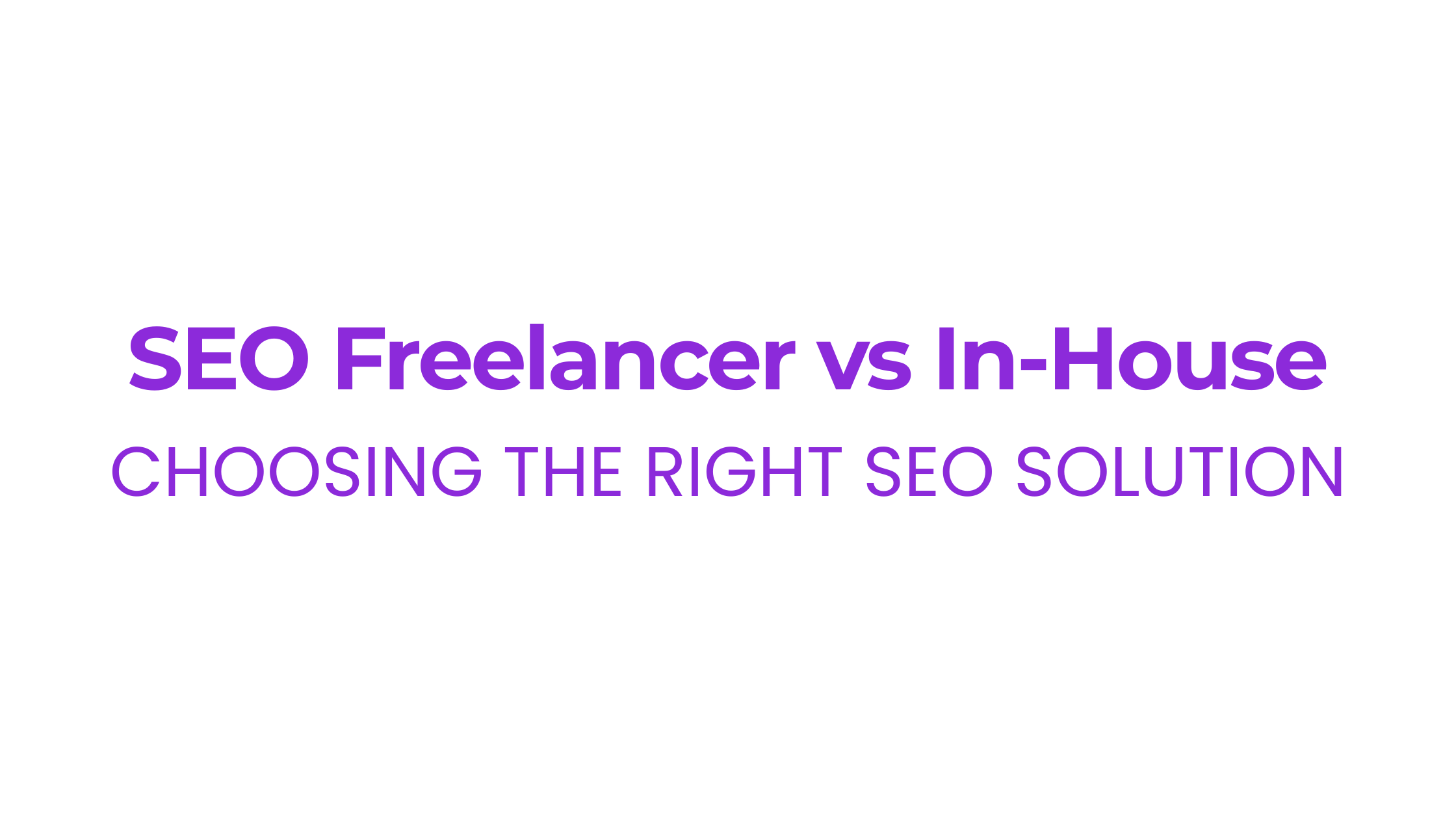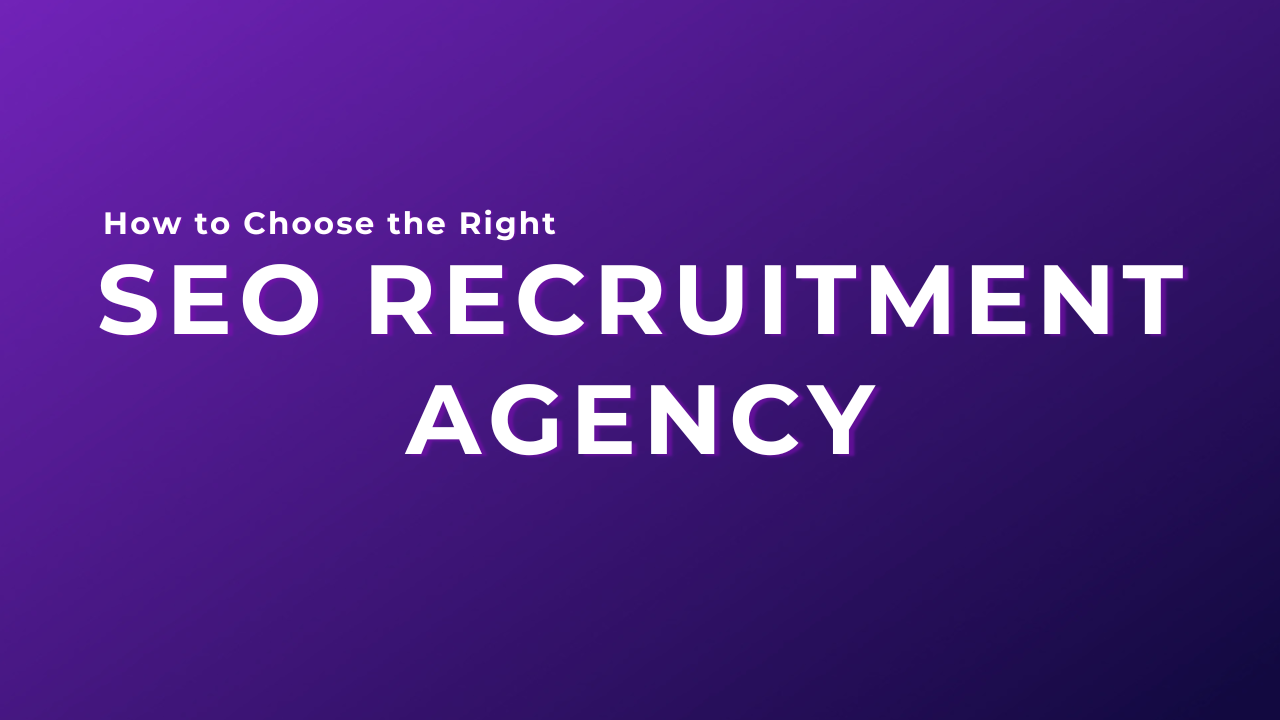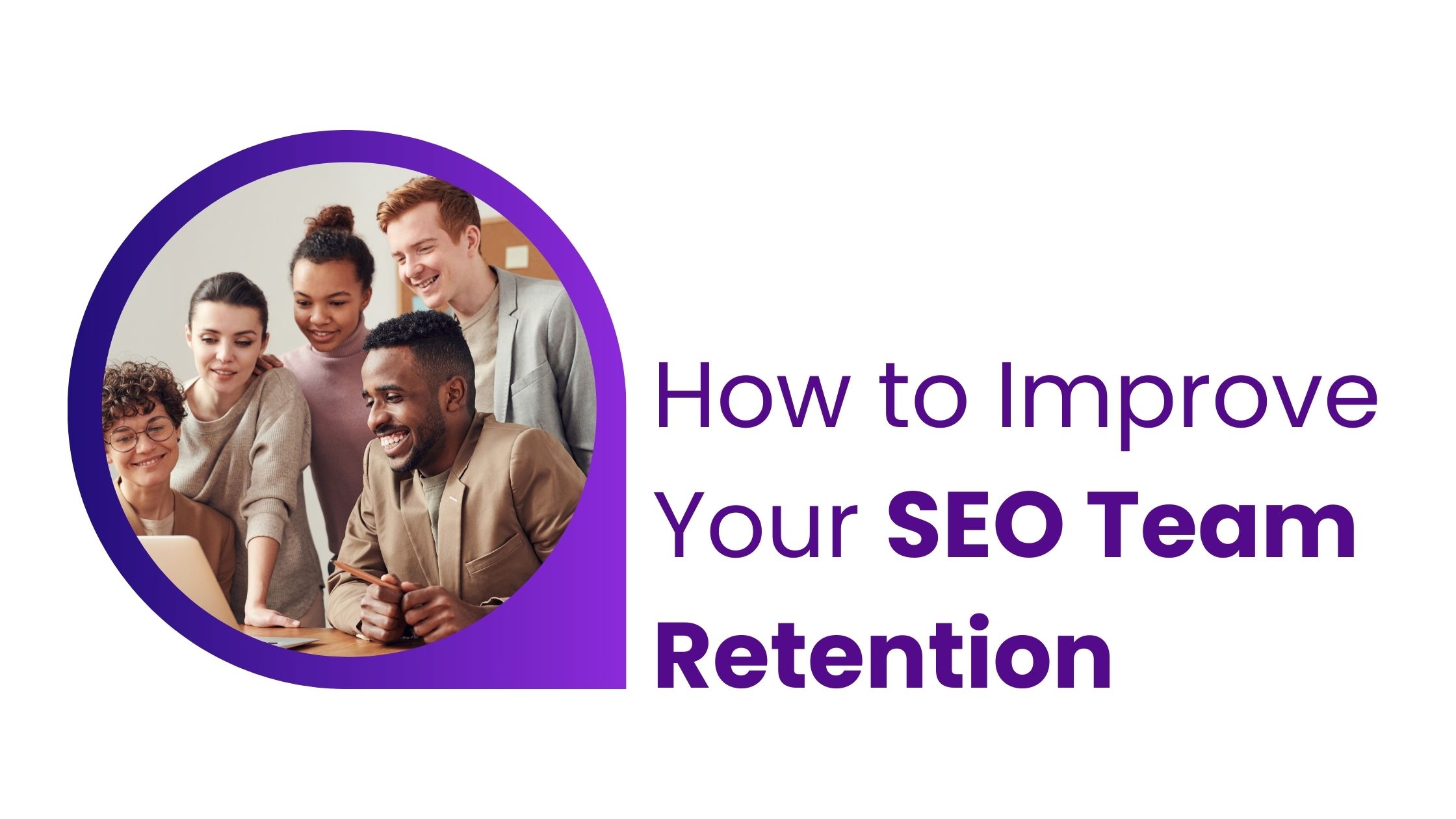Whether you’re interested in building your skillset to enter into the SEO industry or you’re already a well veteran SEO, one of the most prominent habits highlighted by many of our SEO Leadership webinar guests is the importance of one thing: having a side project.
The Benefits of SEO Side Projects
Side projects offer a magnitude of benefits to anyone in the SEO industry, at any stage in their career:
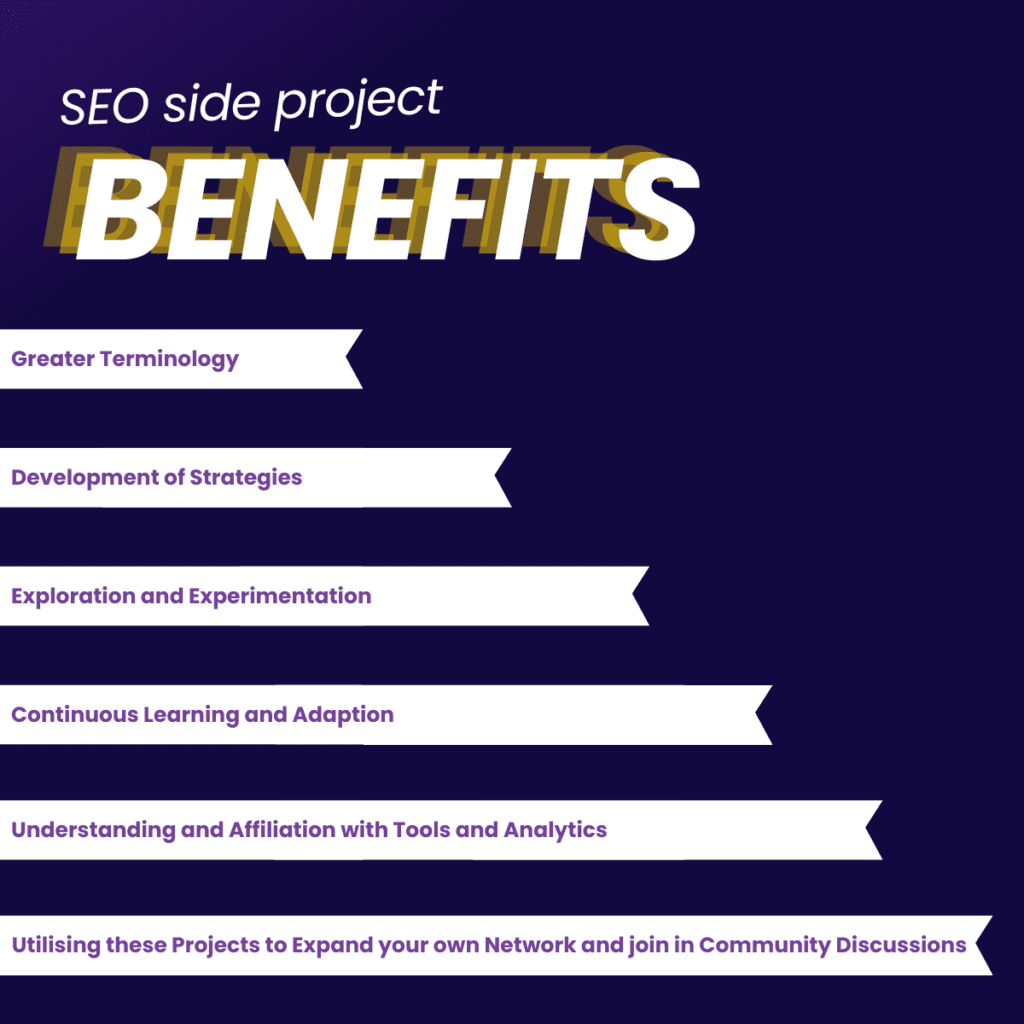
And naturally, levelling up in your own career.
Side projects allow you to broaden your horizons outside of just your company/teams’ scope of work, as well as build your own authority in the industry.
Not to mention, when job hunting, many candidates love to show-off their own passion for the craft, as well as their skillset, by bringing these projects and reports into their job interviews.
It can serve as a great way to communicate to potentially new employers:
- Your passion
- Level of expertise and authority
- Understanding of your mode of learning, working and communicating
It helps to put on paper how your skillset can directly impact business.
And when you sum it down to that–
That’s a pretty strong case to present to any employer.
So, with this in mind, where do we begin?
Welcoming: The Senior SEO Manager at From the Future
We sat down with our good friend, JP Garbaccio, a Senior SEO Manager at From the Future, and owner of jpgarbaccio.com.
JP caught our attention online, through his strong passion and ability to experiment, learn and analyse from his own side projects, growing his personal branding as an SEO incredibly.
JP was brought into our SEO networking event, SEO Xclusive, as a panelist to join in discussions on the industry.
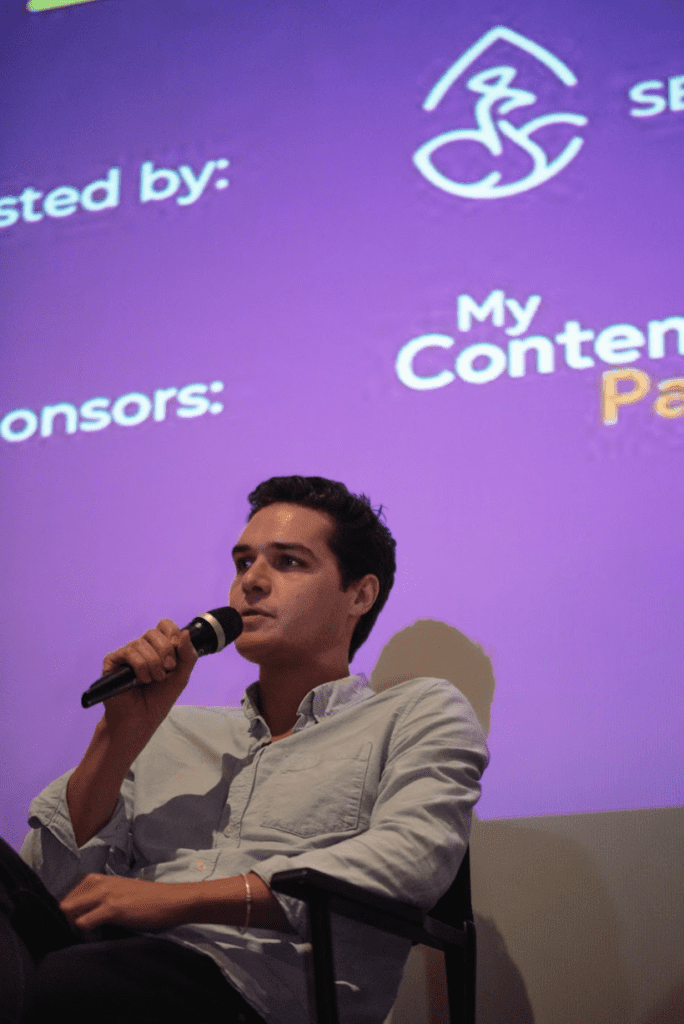
He made such a positive impact, that he secured a role–
That, case-in-point, highlights the promising power of where side projects can take you.
How Did You Begin your SEO Side Project Journey?
My eyes were opened to SEO side projects when I started working for Gary Wilson from Get Me Links, who was essentially running the Glaswegian SEO scene alongside Craig Campbell back in 2019. I was his first full time employee (FTE).
I started helping him with his CBD site, and then he started giving me access to his property sites, and other websites that he owned. He taught me about revenue, how to flip them, and I became more interested but lacked the resources, knowledge and confidence to actually build anything of my own.
Fast forward to when I worked at Niche Website Builders (NWB), I saw how easy it was for people to build websites around subjects they really had no knowledge about, and then outsource the work and actually make a pretty penny from.
Because we dealt with clients of all sorts of niches, I was exposed to different levels of profitability and was able to ‘spectate’. I then purchased Matt Diggity’s ‘The Affiliate Lab’, consumed it, and started building my first websites shortly after.
Who or Where were You Receiving Valuable Information From?
I got information from my mentors (Gary, who founded Get Me Links) and from Adam and Mark (who founded NWB).
I learnt on the job, was exposed to processes and different niches, and then combined those with the knowledge from the Affiliate Lab to actually pick a niche and started using the tactics to build out the site.
Outside of that, speaking to people in the industry and fellow SEOs I had met along the way was a good way to learn about what was actually working.
At that time, during 2020 (Covid), there were A LOT of people posting things online like Spencer Haws (Niche Pursuits) and Alex Cooper (WP Eagle). Funny enough, they were also our clients at NWB so I spoke with them about their websites, or worked on them every week, because I helped rank those sites and get them traffic.
I sort of just became deeply and intimately involved in that world (low- to medium-level affiliates) for about a year, so every conversation was an opportunity to learn.
Take us Through a bit of Your SEO Side Project Journey – What Key Lessons did You Learn From It?
The main lesson is that it’s a lot harder than people make it out to be, and that it takes a lot more work than you think, and probably isn’t as profitable as it used to be – I think that’s the reason why there’s a lot of lifestyle marketing around it.
It’s easier to get paid to tell people how to do it, than do it and get paid from doing it.
But, I gained a lot of confidence in the process and basically could look back and know exactly what worked, and what didn’t work. It also gave me the grounds for testing and experimenting – which was huge. Having my own website, with real traffic that wasn’t the Google Merchant Store or a client’s store was awesome – and watching the traffic grow felt like a great achievement.
I also learnt a lot about Google’s algorithm by looking at reports and knowing what I’d done, and how I see traffic growth from that. When it’s your own site, you care more and pay attention to every little thing – unlike a site you’re just handed.
It also just furthered the belief that I know this SEO thing, and that I can do it consistently on any website and see results – even one that I’ve built myself from the ground up with no help.
The biggest lesson is that you need to pick a niche that you could work on without being paid, so you have to have knowledge about it and be passionate, otherwise, you’ll fall out of love with it eventually, like I did – with a few websites.
What Would You Advise to Juniors Looking to Start Their SEO Side Project Journey?
There is a lot of upfront work that’s required, so don’t underestimate how much work goes into this process, like:
- Niche research
- Keyword research
- Hierarchy planning
- Website building
- Link analysis
- Content writing
- Link outreach
- Technical fixes
- … etc.

And, if you can’t do all of this yourself, and you can’t have friends that can help you – you’re likely going to have to outsource this and pay for that. So, expect that it will cost money to get this project off the ground.
Also, you’re going to have to do at least 12 months of upfront work before you see any real results, and perhaps 18 months of consistent work before you start making money that you’re comfortable with.
And, once you make that money, you should really just invest that back into the project – don’t expect to get rich, fast. I’ve seen way too many people fail because they think this is the golden ticket, and then the site tanks, along with cash flow.
Don’t build too many sites too fast, don’t spread yourself too thin – rather focus on one and once that works and you have processes and a network to help you build these – then you can focus on building more sites.
And, once again, build a website around something that you’re passionate about – because you’re going to spend up to 2 years just working on this thing – especially if have no resources.
So make sure you can go home every night and sit at this website and not get sick of it, otherwise, it’ll never work.
How Has it Helped You Elevate Your Career Path & Secure Your New Role?
Most importantly, it gave me more confidence – because I’d transitioned from a theorist to a practitioner. I’d learned a lot, and then was able to put that into practice and get results.
I did this with a brand I invented, on a fresh domain I bought, using a website I built myself with my own hands. This is huge.
You can quickly tell the difference between someone that knows their stuff and someone that reads their stuff, and someone that’s actually done the work versus someone that hasn’t.
Outside of that, the real-world results were tangible: I could speak to people about my website, at any point I could open my phone and show them GSC and, most importantly, it really helped me a lot in interviews.
I didn’t need to only speak about ‘client websites’, because I could speak about my own. I could show them the traffic, I could show them my Ezoic reports, the money I’d made from my website.
Most importantly, it allowed me to be sovereign – because I now possessed a skill that I could exercise any time I want, which allowed me to be more confident in my career and in my job in general.
Sometimes, when your identity is tied too much to your job you will change your personality to keep it – but knowing I could build a side project and turn that into a business at any point in time made me critical, objective and frankly, feel powerful.
I’d advise anyone to do it.
If you’re looking to standout in your next job interview, our team are experienced in helping you make that great first impression. If you’re currently looking for your next role, head over to our Career Opportunities page for more insights on standing out in the interview process, and our vetting process.

